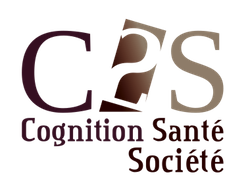Two social minds in one brain? error-related negativity provides evidence for parallel processing pathways during social evaluation
Résumé
Several authors assume that evaluative conditioning (EC) relies on high-level propositional thinking. In contrast, the dual-process perspective proposes two processing pathways, one associative and the other propositional, contributing to EC. Dual-process theorists argue that attitudinal ambiguity resulting from these two pathways’ conflicting evaluations demonstrate the involvement of both automatic and controlled processes in EC. Previously, we suggested that amplitude variations of error-related negativity and error-positivity, two well-researched event-related potentials of performance monitoring, allow for the detection of attitudinal ambiguity at the neural level. The present study utilises self-reported evaluation, categorisation performance, and neural correlates of performance monitoring to explore associative-propositional ambiguity during social attitude formation. Our results show that compared to associative-propositional harmony, attitudinal ambiguity correlates with more neutral subjective evaluations, longer response times, increased error commission, and diminished error-related negativity amplitudes. While our findings align with dual-process models, we aim to offer a propositional interpretation. We discuss dual-process theories in the context of evolutionary psychology, suggesting that associative processes may only represent a small piece of the EC puzzle.
Mots clés
Dual-Process Cognition
Evaluative Conditioning
Event-related Potentials ERP
Social evaluation
Evolutionary psychology
Dual-process cognition evaluative conditioning event-related potential social evaluation evolutionary psychology
Dual-process cognition
evaluative conditioning
event-related potential
social evaluation
evolutionary psychology
Fichier principal
 Elimari & Lafargue (2024) Two social minds in one brain error-related negativity provides evidence for parallel processing pathways during social evaluation.pdf (806.77 Ko)
Télécharger le fichier
Elimari & Lafargue (2024) Two social minds in one brain error-related negativity provides evidence for parallel processing pathways during social evaluation.pdf (806.77 Ko)
Télécharger le fichier
| Origine | Fichiers produits par l'(les) auteur(s) |
|---|

